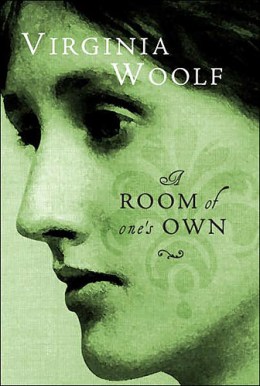
What if Shakespeare had had a sister as naturally gifted as he was? Would she have grown up to be the most acclaimed writer of the English language? Or would her genius have languished at home, smothered by household chores, the demands of family and an inability to call her life her own? This is the question Virginia Woolf poses in A Room of One’s Own, the slim volume adapted from a series of lectures she gave at Cambridge University in 1928 that became a founding pillar of feminism. Woolf throws down the gauntlet: “A woman must have money and a room of her own if she is to write fiction,” and, in a beguiling, conversational tone far removed from the complex rhythms of her fiction, investigates all the factors that routinely get in the way. She first delivered these words at a time when the women in her audience were far more disenfranchised — it had been only a decade since they got the right to vote. But Woolf’s work resonates just as powerfully today, every time individual creativity comes into conflict with the demands of a very commercial world.
